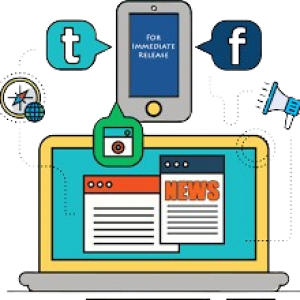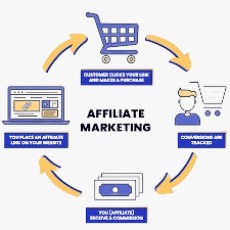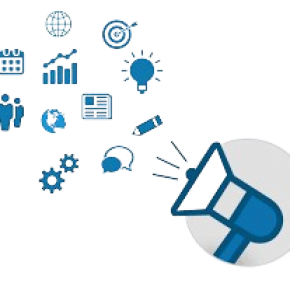DIGITAL MARKETING
Training
Introduction
Certainly, I can provide you with an introduction to digital marketing! Digital marketing refers to the use of digital channels, platforms, and technologies to promote products, services, or brands to a target audience. It’s an essential component of modern business strategies, as it allows businesses to reach potential customers online, where a significant portion of their target audience spends time. Here are the key components of digital marketing:
Search Engine Optimization (SEO):
SEO involves optimizing your website’s content and structure to rank higher in search engine results pages (SERPs). This helps your website attract organic (unpaid) traffic from search engines like Google. Good SEO practices involve keyword research, on-page optimization, technical optimization, and building high-quality backlinks.


Content Marketing:
Content marketing revolves around creating and distributing valuable, relevant, and consistent content to attract and engage a target audience. This content can include blog posts, articles, videos, infographics, and more. The goal is to establish your brand as an authority and provide value to your audience.
Social Media Marketing:
Social media platforms like Facebook, Instagram, Twitter, LinkedIn, and TikTok offer avenues for businesses to engage with their audience, share content, and run targeted advertising campaigns. Each platform has its own unique features and user demographics.


Pay-Per-Click Advertising (PPC):
PPC advertising involves placing ads on search engines or social media platforms and paying a fee each time someone clicks on your ad. Google Ads is a popular platform for search engine PPC, while platforms like Facebook Ads and Instagram Ads offer social media PPC options.
Email Marketing:
Email marketing involves sending targeted messages to a list of subscribers. It’s an effective way to nurture leads, promote products, and maintain relationships with customers. Personalization and segmentation are important in email marketing to deliver relevant content.


Influencer Marketing:
Influencer marketing leverages individuals with a large and engaged following on social media to promote products or services. Businesses collaborate with influencers who align with their brand to reach their audience in a more authentic and relatable way.
Affiliate Marketing:
In affiliate marketing, businesses partner with individuals or other businesses (affiliates) to promote their products. Affiliates earn a commission for each sale or action generated through their marketing efforts.


Analytics and Data Analysis:
Digital marketing provides the advantage of extensive data collection. Analyzing data from website traffic, social media engagement, and ad campaigns helps marketers understand what’s working and what’s not. Tools like Google Analytics and various social media insights are crucial for this.
Online Public Relations (PR):
Online PR involves managing a brand’s online reputation, responding to customer inquiries and feedback, and maintaining a positive online presence through various digital channels.


Conversion Rate Optimization (CRO):
CRO focuses on improving the effectiveness of your website and landing pages to convert visitors into customers. It involves testing different elements (such as headlines, CTAs, and layout) to find what resonates best with your audience.